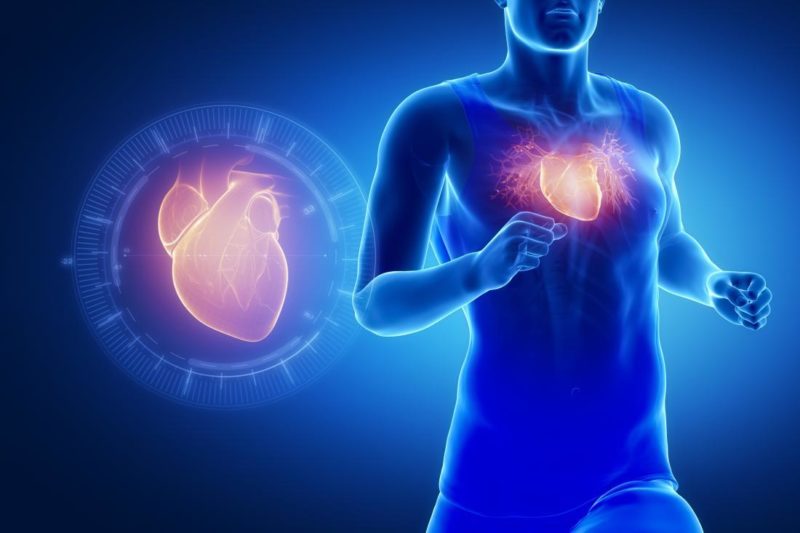
Your heart works hard every second of every day, pumping blood around your body and circulating all the nutrients and oxygen it needs to function effectively. Poor heart health can negatively impact your whole body, whether that’s an increased risk of stroke, heart attacks, diabetes, high blood pressure or more. The good news is that by making healthy lifestyle changes, particularly with diet and exercise, you can reduce the risk of heart disease and improve your heart function to brace yourself against any other potential issues.
WHY IS EXERCISE SO GOOD FOR YOUR HEART?
Research shows that 30 minutes of exercise a day can make the heart stronger, so it can pump more blood with each beat. This in turn delivers more oxygen to the body, so your limbs and organs can function more efficiently. By improving your general fitness levels, you can see a positive effect in a variety of ways, including:
- Lower blood pressure – high blood pressure can increase the risk of heart attacks and strokes. However, regular physical activity that strengthens the heart means it has to work less hard to pump blood around your body, which in turn lowers your blood pressure.
- Weight control – being overweight can lead to fatty material building up in your blood vessels, which can lead to high blood pressure, high cholesterol and an increased risk of type 2 diabetes. Regular exercise, along with a healthy diet, can help to keep your weight in check and lower the risk of these health issues.
- Stronger muscles – if your muscles are strong, they’re better at drawing oxygen from the circulating blood, which means your heart doesn’t have to work so hard to do its job
- Fights stress – stress and anxiety have been linked with a range of heart problems, most notably because they can affect behaviours and factors that can lead to an increased risk of heart disease. It can lead to an increase in unhealthy lifestyles, like an increase in smoking, drinking, overeating and physical inactivity. Exercise is known to battle stress, with endorphins helping to support mental wellbeing.
- Cardiac rehabilitation – if you’ve had heart issues in the past, such as a heart attack or stroke, then a carefully planned physical activity routine plays an important part in recovery and help to reduce the risk of further problems. Always speak to your doctor before beginning a rehabilitation exercise plan.
WHAT IS THE BEST TYPE OF ACTIVITY FOR HEART HEALTH?
The best type of activity is the one you and enjoy and will stick to. Ideally, it’s recommended that you try to get at least 30 minutes of moderate intensity exercise a day to encourage good heart health.
Walking is a great start, whether that’s hopping off the bus a few stops early or using the treadmill at the gym. Any increase in exercises will be beneficial, so consider building in other aerobic activities, like jogging, cycling, dancing or any number of workout classes or sports. Try a few until you find something you like and can build into a weekly routine – your heart will thank you for it.
Muscle strengthening activities also provide benefits, so including free weights or resistance bands in your workouts (or even just carrying heavy shopping bags) will boost your muscles and have a fantastic knock-on effect for your heart.
WHAT OTHER LIFESTYLE CHANGES CAN HELP HEART HEALTH?
Exercise is a key part of heart health, but there are other ways you can tweak your lifestyle to keep the blood and oxygen pumping effectively.
- Diet and nutrition – Eating in a healthy and considered way can help decrease your risk of heart attack and stroke. Plus you’ll be more likely to keep your weight under control, which also has benefits for your heart health. Include plenty of fruit and vegetables in your diet, as well as whole grains, fish, lean meats, nuts and seeds. Try to avoid too much saturated fat, trans fat, sodium, processed sugar and red meat.
- Mental wellbeing – there have been many links between heart disease and mental health issues such as anxiety and depression, both as cause and effect. In some cases, depression or anxiety can lead to an unhealthy lifestyle, which can lead to heart issues. Working on your mental health and taking care of yourself, speaking to a doctor if needs be, will have both psychological and physical benefits.
- Sleep and rest – people who don’t get enough sleep are at an increased risk of heart disease and cardiovascular problems. If you lack enough energy to maintain regular exercise, then your heart is having to work much harder to serve your body. Take care of yourself and get plenty of rest – while exercise is great, it’s also important to take days off to give your body time to recover.
Not sure where to start with an exercise program?
Speak to one of our Personal Trainers and they can help you create a regular routine that will have huge benefits for your heart health.




